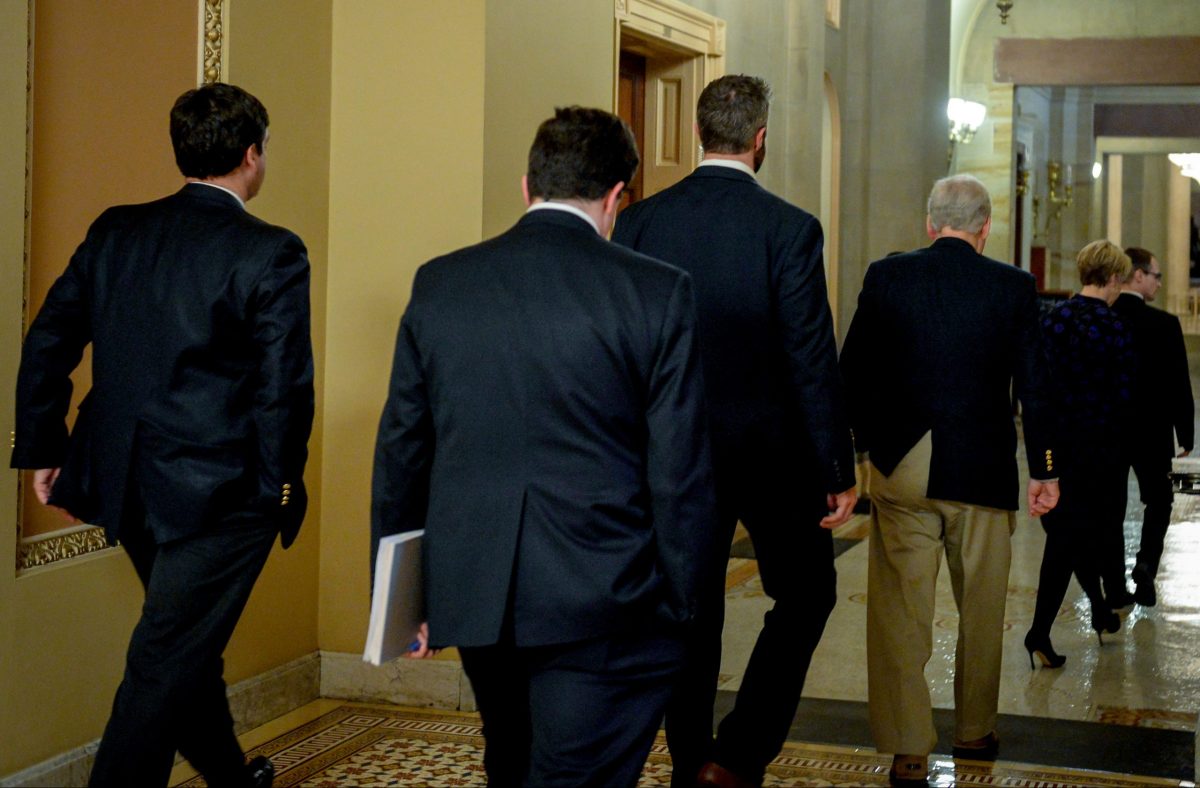BY DAVID MORGAN AND ANDY SULLIVAN
A far-reaching coronavirus economic stimulus package failed to advance in the U.S. Senate on Monday as Democrats said it contained too little money for states and hospitals and not enough restrictions on a fund to help big businesses.
The 49-46 vote left the $2 trillion measure short of the 60 votes needed to advance, as the chamber remained deadlocked for a second day. Only one Democrat, Doug Jones of Alabama, voted with Republicans to advance the bill.
Congress has already passed some legislation to blunt the economic toll of the pandemic that has killed at least 506 people in the United States and sickened more than 43,000, leading state governors to order nearly a third of the nation’s population to stay at home and threatening to throw millions out of work.
Tempers frayed as Republicans accused Democrats of obstruction during a national emergency.
“The country is burning and your side wants to play political games,” said Republican Senator John Thune, who angrily accused Democrats of “dilly-dallying around.”
Democrats said they were close to an agreement with Republicans, with Senate Democratic Leader Chuck Schumer saying a modified version could pass on Monday. But they insisted that it needed to include more oversight provisions for a $500 billion fund for large businesses.
“Take a deep breath. We’re gonna pass this bill,” Democratic Senator Dick Durbin said.
‘Hip-deep negotiating’
After the vote, Treasury Secretary Steven Mnuchin, the Trump administration’s point person on coronavirus legislation, shuttled in and out of Schumer’s office.
“His folks are hip-deep negotiating with Mnuchin, which is a good sign,” Democratic Senator Chris Coons said.
President Donald Trump’s administration last week launched a major push for action to blunt the market slide caused by the pandemic, after Trump himself spent several weeks dismissing the virus’ risks.
The Senate measure includes financial aid for ordinary Americans, small businesses and critically affected industries, including airlines.
Republicans said Democrats were seeking to add unrelated provisions, such as expanded tax credits for wind and solar power and increased leverage for labor unions.
Democrats said Republicans were also trying to add provisions that would exclude nonprofit groups from receiving small-business aid, and extend a sexual abstinence-education program that is due to expire in May.
The speaker of the House of Representatives, Nancy Pelosi, released her own version, which would add billions of dollars to help states conduct elections by mail.
Republicans normally hold a slim 53-47 majority in the chamber, short of the 60 votes they need to advance most legislation.
But the coronavirus threat has affected their ranks. Republican Senator Rand Paul said he tested positive for the virus on Sunday, and several others have self-quarantined as a precautionary measure. Republicans only mustered 47 votes in Sunday’s procedural vote.
Paul’s decision to keep circulating on Capitol Hill after getting tested, including an alleged visit to the Senate gym, drew widespread criticism and prompted several other Republicans to self-quarantine as a precautionary measure.
Paul said he would not even know that he had contracted the disease if he had not ignored recommendations and sought testing. “The broader the testing and the less finger-pointing we have, the better,” he said in a statement.
Democratic Senator Amy Klobuchar said her husband John contracted pneumonia and coughed up blood after contracting the disease. She said she is not at risk because she has not seen him in person for two weeks.


































